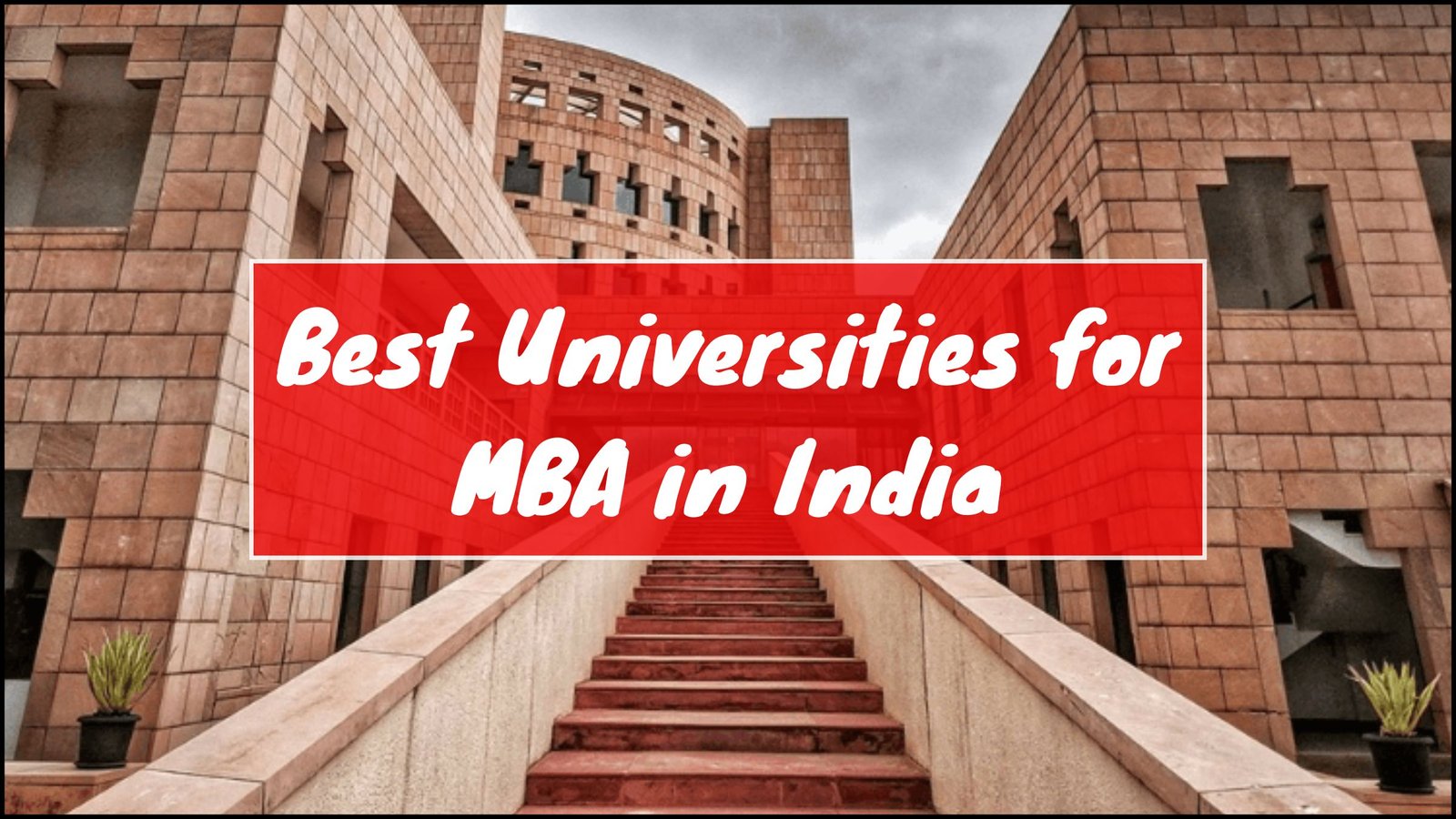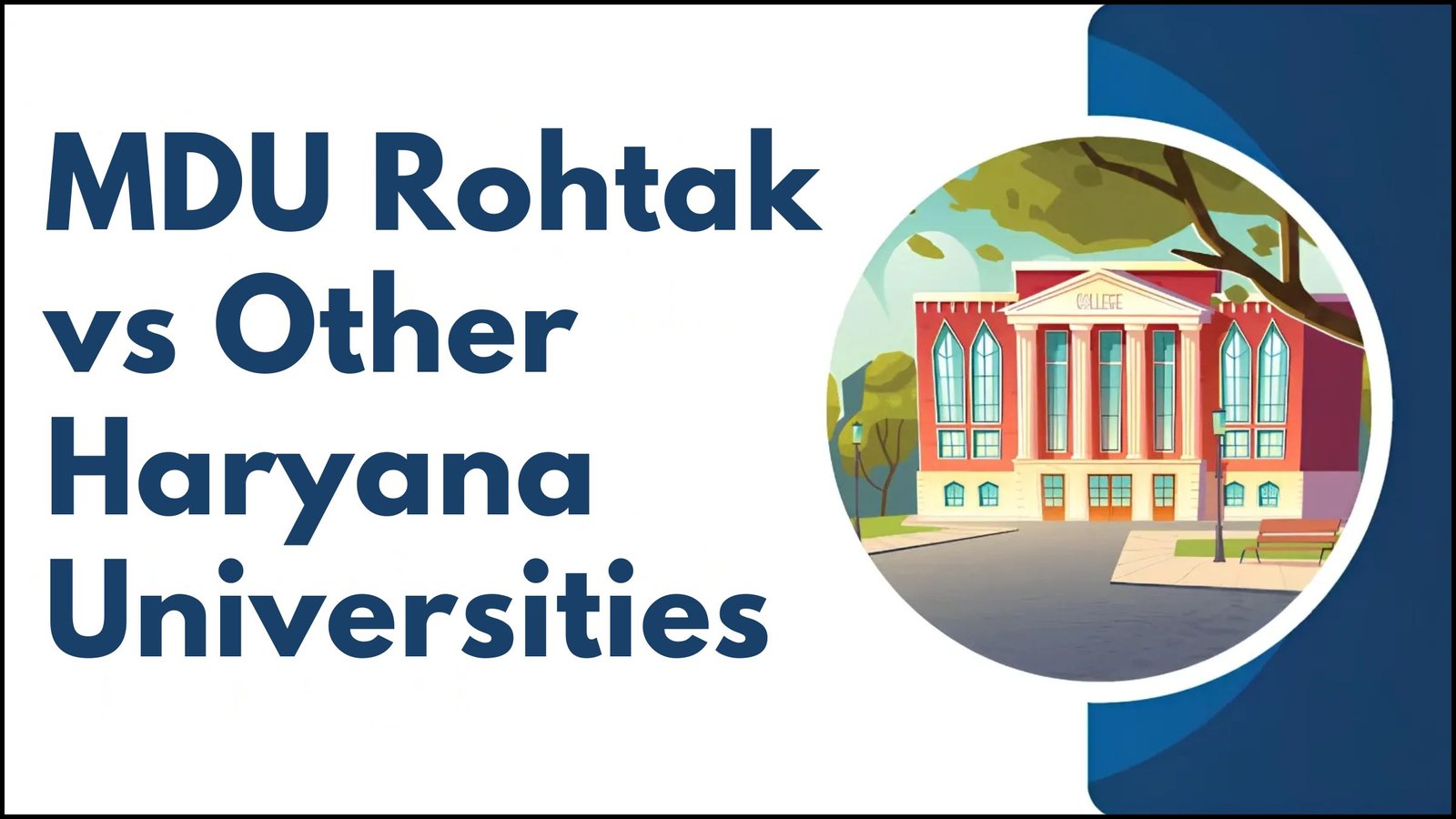
The MBA (Master of Business Administration) is one of the most sought-after postgraduate degrees for those looking to build a career in management. Maharshi Dayanand University (MDU) Rohtak offers both Regular and Distance MBA programs, each designed to cater to different types of students. While the degree awarded is the same, the mode of learning, flexibility, costs, and campus experience differ significantly. This comparison will help you decide which option suits you best.
Comparison of MDU Rohtak Distance MBA vs Regular MBA
| Aspect | Regular MBA | Distance MBA |
|---|---|---|
| Mode of Learning | Classroom-based, on-campus learning. | Online, self-paced learning with study centers. |
| Duration | 2 years (full-time, fixed schedule). | 2 to 4 years (flexible duration). |
| Flexibility | Fixed schedule, less flexibility. | High flexibility, study at your own pace. |
| Interaction with Faculty | Regular face-to-face interaction. | Limited interaction via online platforms and emails. |
| Learning Environment | Classroom-based learning with peer discussions. | Remote learning with minimal physical interaction. |
| Curriculum | Same as Distance MBA program. | Same as Regular MBA, but more self-directed. |
| Cost | Higher due to campus facilities and infrastructure. | Lower cost due to minimal campus-related expenses. |
| Examinations | On-campus exams, in-person assessments. | Same as the Distance MBA program. |
| Networking Opportunities | In-person interactions, campus events. | Limited networking due to online format. |
| Job Opportunities | On-campus placement opportunities, recruitment drives. | Fewer on-campus recruitment drives; more self-initiative needed. |
Advantages of a Regular MBA
- Structured Learning: A set timetable with fixed classes and assessments provides a clear, structured learning experience.
- Face-to-Face Interaction: Regular MBA offers direct access to faculty, allowing for better understanding and personalized guidance.
- Networking: Opportunities for peer-to-peer learning, group activities, and connections with industry professionals.
- Campus Experience: Students have access to campus facilities like libraries, sports, and extracurricular activities, enriching the overall learning experience.
Advantages of Distance MBA
- Flexibility: Distance MBA allows you to study at your own pace and from any location, making it ideal for working professionals.
- Lower Cost: Distance learning eliminates many of the costs associated with on-campus programs, such as accommodation and commuting.
- Self-Paced Learning: Students can choose how quickly or slowly they want to complete their degree, providing the flexibility to balance work or other commitments.
- Work While Studying: Distance MBA allows students to continue working full-time while studying, offering the opportunity to gain practical experience alongside academics.
Key Differences between Distance and Regular MBA
| Factor | Regular MBA | Distance MBA |
|---|---|---|
| Learning Mode | Full-time on-campus, scheduled classes. | Online learning, minimal physical attendance. |
| Duration | Fixed two-year duration. | Flexible, typically 2-4 years. |
| Cost | Higher due to campus facilities and full-time classes. | Lower due to the absence of campus-related expenses. |
| Job Support | Access to campus recruitment and internships. | Limited campus recruitment, requires self-initiative. |
| Interaction with Peers | Regular interaction through group discussions and campus events. | Limited interaction, mostly online. |
Challenges of Regular MBA
- Less Flexibility: Regular MBA requires full-time attendance, leaving little time for work or personal commitments.
- Higher Expenses: The cost of a regular MBA program is higher, as it includes tuition, accommodation, and other campus-related fees.
- Fixed Schedule: The rigid timetable of a regular MBA can be difficult for students who wish to balance multiple responsibilities.
Challenges of Distance MBA
- Limited Interaction: The online learning environment offers fewer opportunities for in-person interaction with faculty and peers, which can affect engagement and networking.
- Self-Discipline Required: Students need a high level of self-discipline and motivation to succeed in distance learning, as the lack of structure may lead to procrastination.
- Perceived Less Value by Employers: While the distance MBA is accredited, some employers may prioritize candidates with a regular MBA, especially for senior roles.
Conclusion
Choosing between a Regular MBA and a Distance MBA from MDU Rohtak depends largely on your circumstances and career aspirations. The Regular MBA is ideal for those who seek a structured learning environment with the added benefit of in-person interactions, networking opportunities, and a full campus experience. On the other hand, the Distance MBA is perfect for individuals who need flexibility, wish to work while studying, or cannot commit to a full-time on-campus program. Both programs offer the same degree, but your choice should reflect your goals, lifestyle, and financial considerations.





